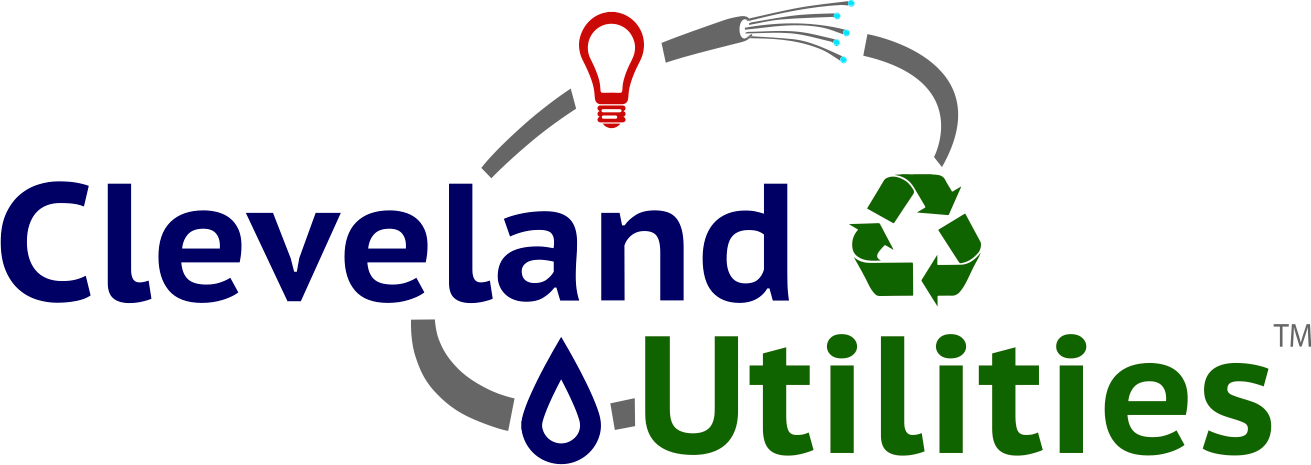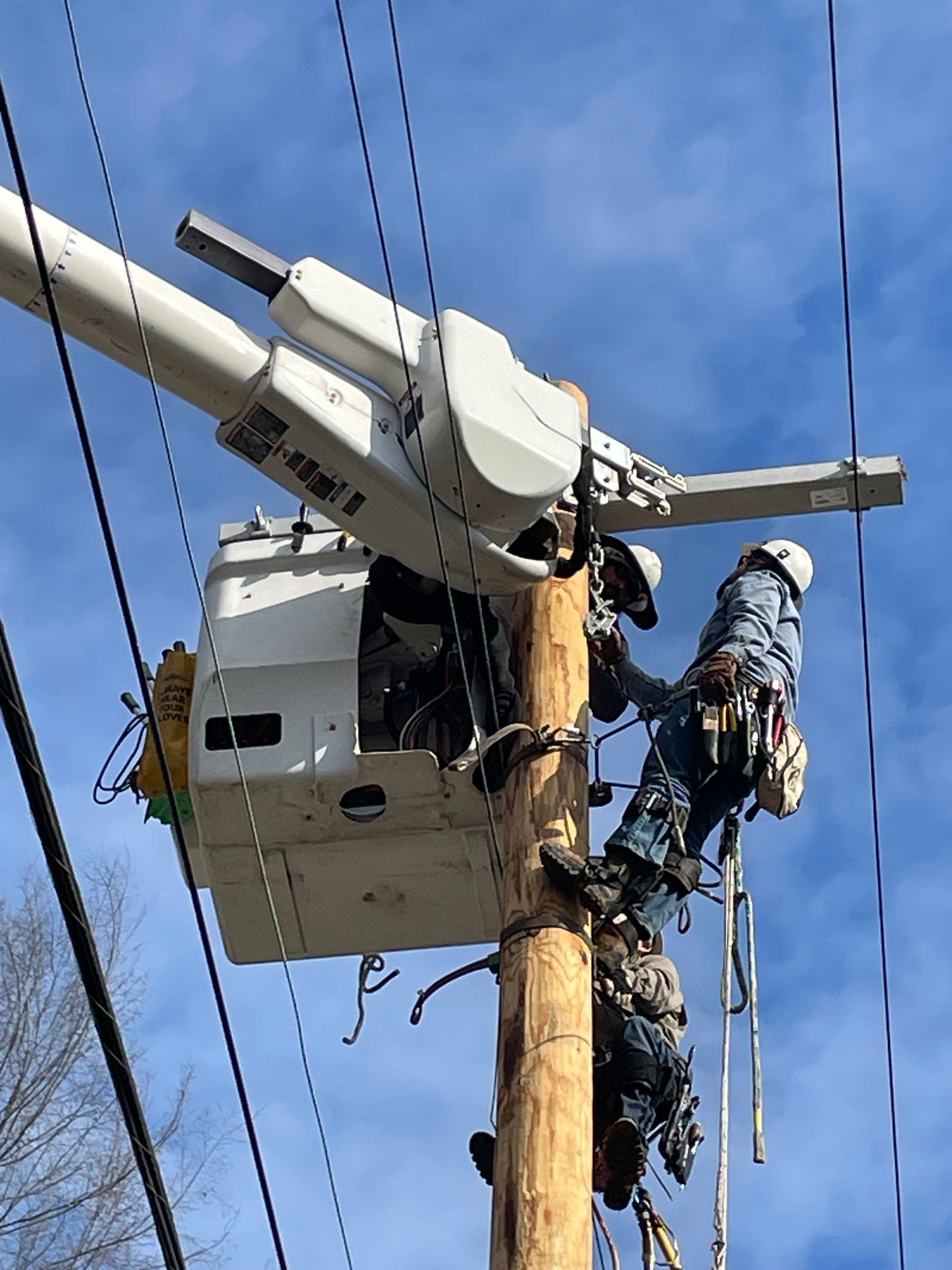
What Are Symmetrical Speeds and Why Are They Essential?
Symmetrical Speeds Explained!

When you’re shopping for an internet provider, you may notice complicated-sounding terms. Some are easier to understand, like “download speed,” which is the metric most people look for when choosing an internet provider and plan. Beyond the eye-catching download speed, however, is another important internet feature that is sometimes overlooked: “symmetrical speeds.”
Now, if “symmetrical speeds” sounds a bit technical, you’re not alone! Below, let’s take a closer look at what symmetrical internet speeds are—and, more importantly, why you should care about them when choosing an internet provider. Whether you're streaming on your TV, video conferencing, working remotely, gaming, or simply sharing large content and files, symmetrical speeds, like those offered by Cleveland Utilities’ advanced fiber network, can dramatically improve your online experience!
Understanding Download vs. Upload Speeds
We’ll begin with some basic definitions, starting with “download speed,” which simply refers to how fast data is transferred from the internet to your device. This includes streaming videos, browsing websites, or downloading files, and most other everyday uses. An internet provider’s maximum download speeds per plan or tier frequently appear in their marketing materials and websites. It’s likely the measure you’re most familiar with when you shop.
Another key feature is your internet’s “upload speed,” or how fast you can send data from your device back to the internet. This includes sending emails with attachments, uploading files to cloud storage, livestreaming, video conferencing, and online gaming. Together, upload and download speeds are among the most essential metrics an internet user needs to know.
Symmetrical Internet Explained
It’s easy to forget that the internet is a two-way street. There are so many people who solely rely on maximum download speeds. Because of this, our goal is to inform our community about the importance of understanding other metrics when deciding on service providers and internet technology.
Data and information don’t just come from a far-off internet server; it also returns to you and your devices every time you click, type, game, or even speak through an internet-connected app or program.
The fancy term for that two-way street concept is “symmetrical internet.” Simply put, symmetrical speeds mean that your upload and download speed is the same. So, if you have a 500 Mbps symmetrical plan, you can both download and upload at 500 Mbps. One is not faster than the other.
As you will see below, symmetrical speeds make for a better online experience.
A Quick Look at Asymmetrical Internet
Traditionally, most internet service providers, especially those using cable or DSL technologies, offer “asymmetrical internet” speeds. As the name implies, with asymmetrical internet, the download speed is significantly faster than the upload speed. They are not equal as with a symmetrical connection.
For instance, with cable’s asymmetrical internet, you might have a 200 Mbps download speed but only 10 Mbps upload. For many applications, that massive divergence between download and upload speeds makes a considerable difference between solid, reliable, pristine internet performance and sluggish and downright aggravating online experiences.
Why Symmetrical Speeds Matter
You might be wondering whether all the hype around symmetrical internet is necessary. Like with many things, it depends on how you spend your time online.
Asymmetrical connections might be fine for casual browsing and streaming; however, symmetrical speeds have become essential in a world where users are uploading as much as they’re downloading. This is especially important in video conferences, telehealth, remote work, operating a business, content creation, or online gaming.
With asymmetrical internet—and its much slower upload speeds, you can expect frequent (and awkward) video freezes, blurry and distorted picture quality, or dropped video calls. This can become frustrating to your co-workers, friends and clients.
Here are several examples of how symmetrical internet is far more superior than traditional asymmetrical internet like cable or DSL:
- Remote Work and Video Conferencing: The rise of remote work (and hybrid workplaces) has made high upload speeds all but required. Applications for video calls like Google Meet, Microsoft Teams, or Zoom, require a stable and fast upload stream to ensure clear video and audio quality, low latency and lag, and smooth screen sharing and collaboration.
- Telehealth: Likewise, for telehealth consultations, high upload speed vastly improves the quality of any online medical appointment. Your appointment with your physician can run much smoother via fiber’s symmetrical internet.
- Content Creation: Content creators and streamers, like those on TikTok or YouTube, often upload high-resolution videos in real time. This requires significant upload speed and bandwidth, especially when streaming in higher resolutions. Without symmetrical internet’s ample upload speed, streams can suffer from lag, pixelation, or complete disconnection, ruining the viewer experience and potentially costing followers or revenue.
- Gaming: Online gamers also depend on faster upload speeds, which affect how quickly your actions are sent to the game server. Low upload speeds can lead to lag, delays, or disconnections, giving your opponents a major advantage.
- Smart Homes and Offices: If you’ve been adding more smart devices to your home or office, you’ll want fiber’s symmetrical internet to keep them operating in real time without delay or interruption. With so many smart doorbells, smart thermostats, smart speakers, and other tech around the house today, having that extra upload speed and bandwidth will keep them running smoothly.
Cleveland Utilities Fiber Delivers Symmetrical Speeds
As you can see, having equally robust download and upload speeds can greatly enhance your online experience. Thankfully, Cleveland Utilities’ high-speed fiber network has the power to bring you symmetrical internet for just about any online application! And yes, our upload speeds are just as fast as our exceptional download speeds.
Whether you need quicker uploads of your own content, better video calls, or smoother movie and TV streaming, symmetrical internet can make a significant difference for you. If you have any questions about how Cleveland Utilities fiber can improve your internet, please reach to our knowledgeable representatives at (423) 472-4521 for more information.










